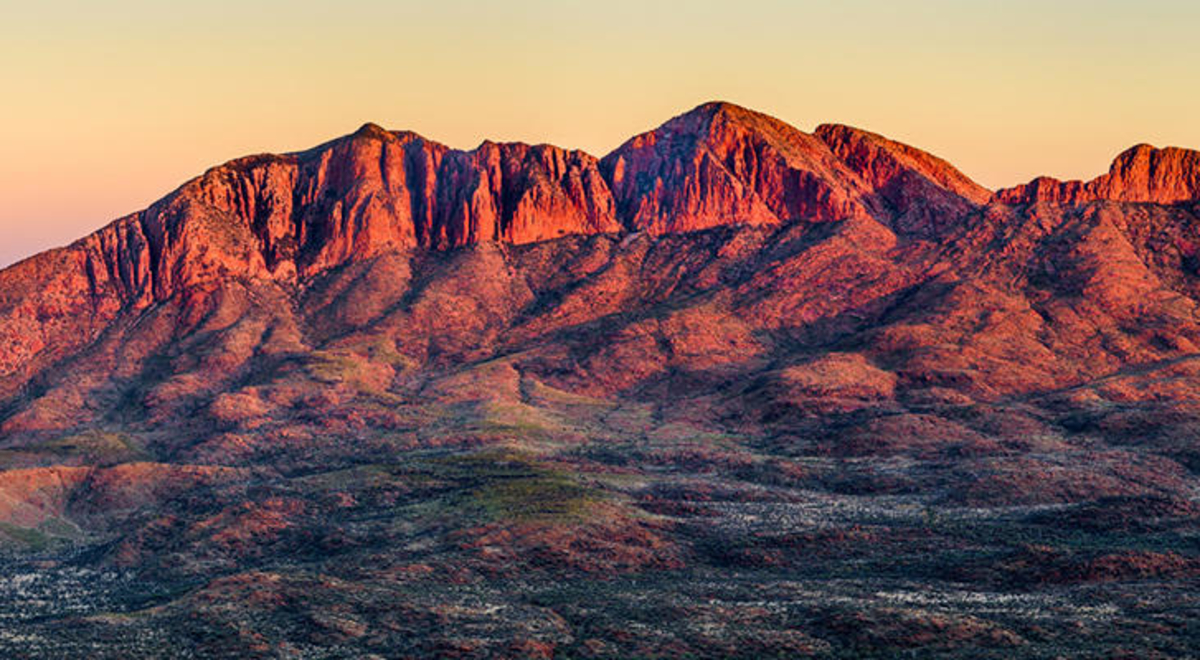I’m standing at the top of a waterfall looking into a gorge. The spray from the wind has a welcome cooling effect in the warm sunshine. Birds squawk as they sweep above the trees and the gushing water rumbles below to complete nature’s melodic orchestra. It’s just past 10am and already I’ve sat down to breakfast at Sweet Brew & Co in Darwin and driven to Litchfield National Park. Just 90 minutes and 145km later, I’m standing on top of the world. I’ve still got plans to check out the termite mounds before a picnic and dip at Buley Rockhole.
Before coming to the Top End, I’d rather ignorantly imagined the landscape to be dictated by sweeping plains and that the only way to get a taste of this wonderful place would be by tackling it in a 4WD with weeks to spare. How wrong I was. In fact, in just a few days you can tick off the Northern Territory’s flowing waterfalls and swimming holes, beautiful wetlands, rugged coastline and magical indigenous heritage, not to mention the burgeoning foodie scene in Darwin. Here's the lowdown...

History, Art and Politics
Any good Top End itinerary should start in the frontier city – at the Museum and Art Gallery of the Northern Territory (MAGNT), to be exact. Housing some excellent interactive exhibits on Darwin’s history, from devastating Cyclone Tracy to Sweetheart, the biggest croc caught (at the time), MAGNT also offers an introduction to Indigenous art and the Dreaming, the ideal place to find your feet before venturing further afield.
To Indigenous Australians, the land is everything; it’s Mother Nature, it’s food, it’s culture, it’s spirit and most of all it’s intricately tied to their identity. They believe the land and everything in it were created when ancestral spirits awoke at the beginning of time, a period they call the Dreaming or Dreamtime. Dreamtime stories explain everything from how sites became sacred and the spirits said to reside there to the consequences of one’s actions.

In the centre of town, you’ll find the intriguing cyclone-proof buildings of the Supreme Court and the combined Legislative Assembly and state Library, which are worth a visit too. If realistic history is more up your alley, head to the WWII Oil Storage Tunnels, where you can enter the dark, damp environment used to store oil and fuel following the bombing of fuel storage tanks in 1942.


Local Eats
Darwin might be big, but for its size it has some very noteworthy eateries. For coffee, head to Laneway Specialty Coffee in Parap, and fresh baked goods and breakfast can be found on the Stuart Highway at SweetBrew.

On Sundays head to Nightcliff for the markets, which are filled with local arts and crafts as well as a decent selection of food stalls. With the weather better than good in the dry season, you have to try Cucina Sotto Le Stelle, an Italian food truck serving up wood fired pizza in a park in Nightcliff. BYO bottle of wine and picnic rug in case the tables are all taken.

Changing Coastline
Darwin’s coastline is surprisingly diverse and unique. The waterfront is a popular spot with restaurants, a wave pool and swimming area, where you’ll find locals and tourists cooling off in the midday heat. Further along the coast however, tropical gardens hug the top of cliffs before brilliant marbled red and white rock give way to the clear blue water at Fannie Bay and East Point Reserve.


National Parks
Without a doubt the main reason to visit the Top End is its natural beauty. Less than a two hour drive from Darwin is the seriously incredible wilderness of Litchfield National Park. Join the locals for a dip at Buley Rockhole or Florence Falls, do the circuit walk at Tolmer Falls or take in beautiful Wangi Falls. Fogg Dam is also worth a visit, a magical wetland reserve just one hour (70km) east of Darwin. If you're a keen fisherman, a fishing charter on the Adelaide River, also an hour east of Darwin, comes with the promise of not only the chance to catch a mighty barramundi, but an even better chance of seeing crocodiles sunbathing on the banks. This is also where you’ll find the famed jumping crocodile cruise.

Further south, a 3.5-hour (345km) drive from the capital brings you to Nitmiluk (Katherine) Gorge, 30 minutes outside Katherine. Nitmiluk Gorge is made up of 13 separate gorges carved by the Katherine River. Best explored on an organised tour, particularly in the wet season, this magical place is home to Bolung, the rainbow serpent. Stretching 12km and lined with 70m-high sheer rock faces, the gorge is perhaps best admired from above. The one-hour moderate walk to Baruwei Lookout is worth it. Standing at the summit, any remaining thoughts of traffic noise or the stresses of work and city life are sure to fade away here.
















